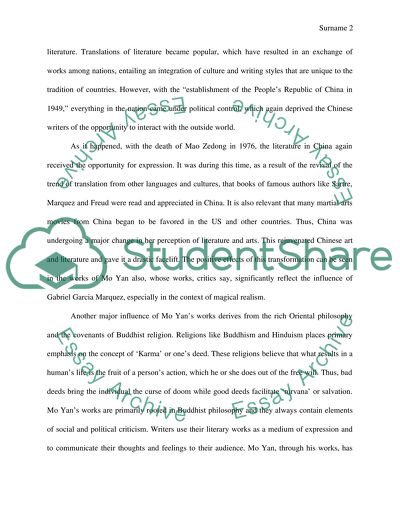Cite this document
(“Reincarnations of an Honest Sinner: An Analysis of Mo Yans Novel, Life Research Paper”, n.d.)
Retrieved from https://studentshare.org/english/1460024-reincarnations-of-an-honest-sinner-an-analysis-of-mo-yans-novel-life-and-death-are-wearing-me-out
Retrieved from https://studentshare.org/english/1460024-reincarnations-of-an-honest-sinner-an-analysis-of-mo-yans-novel-life-and-death-are-wearing-me-out
(Reincarnations of an Honest Sinner: An Analysis of Mo Yans Novel, Life Research Paper)
https://studentshare.org/english/1460024-reincarnations-of-an-honest-sinner-an-analysis-of-mo-yans-novel-life-and-death-are-wearing-me-out.
https://studentshare.org/english/1460024-reincarnations-of-an-honest-sinner-an-analysis-of-mo-yans-novel-life-and-death-are-wearing-me-out.
“Reincarnations of an Honest Sinner: An Analysis of Mo Yans Novel, Life Research Paper”, n.d. https://studentshare.org/english/1460024-reincarnations-of-an-honest-sinner-an-analysis-of-mo-yans-novel-life-and-death-are-wearing-me-out.


